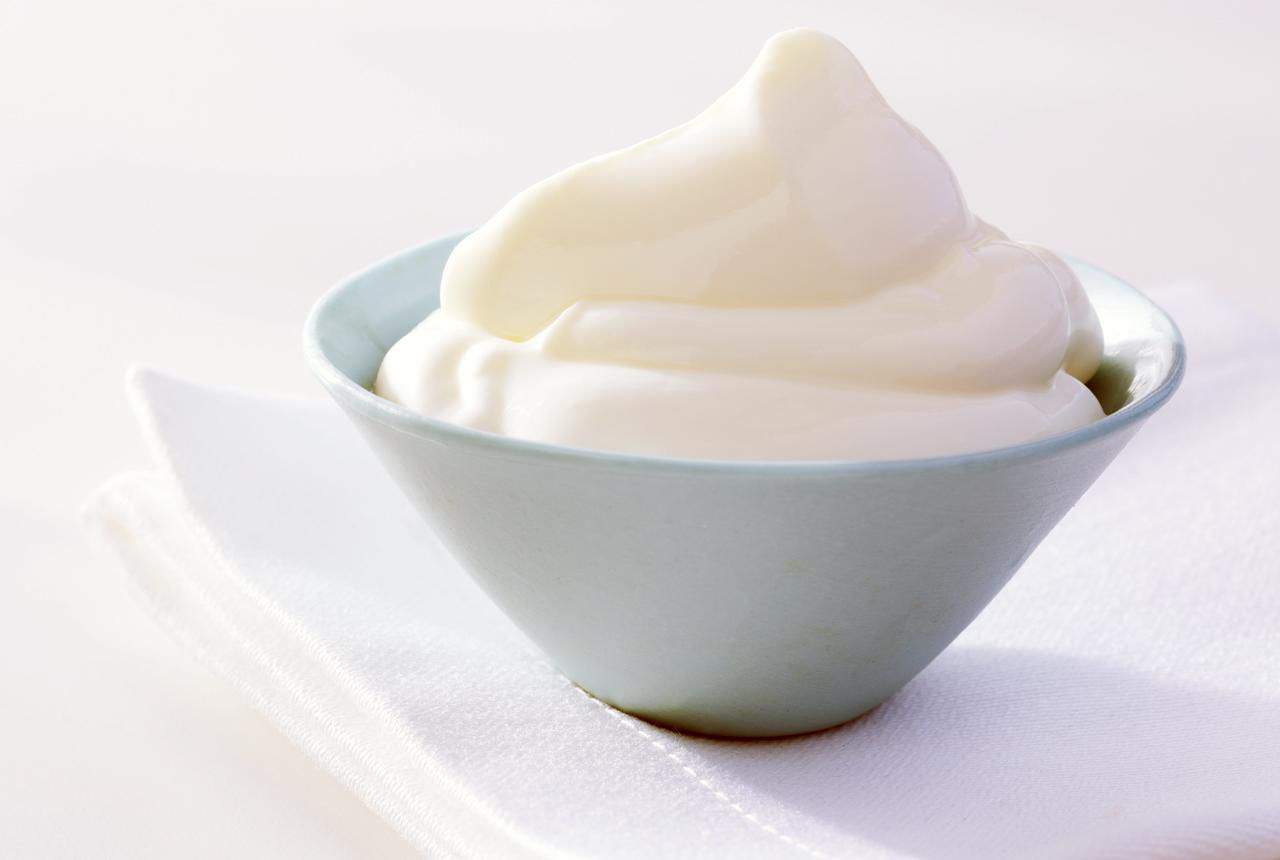
Is Sour cream good for you?
Sour cream, when used in small amounts, can be part of a healthy diet. A tablespoon of sour cream is less than 25 calories, but if you pile on the sour cream, the calories and fat content can add up.
Sour cream is made from adding lactic acid producing bacteria to cream. The lactic acid bacteria produces the slightly tangy, acidic taste sour cream is known for. The FDA standard for anything labeled as sour cream dictates the butterfat content needs to be at least 18 percent.
Sour cream can be part of traditional European, Central and North American and Tex-Mex cuisines of as a condiment for savory dishes. However, sour cream can also be used in various baked good recipes because it can act as a tenderizer.
Sour cream, like other full fat dairy foods, is considered high in saturated fat and calories.
However, this doesn’t necessarily make sour cream a “forbidden” food because the portion size of sour cream used is generally small.
Also, the effect full fat dairy has on health has recently been challenged in some scientific research. Sour cream can also provide vitamin A and calcium.
Therefore, as with all other single foods, sour cream can have some positive and maybe negative nutritional aspects. If you use sour cream, it’s important to use in moderation and incorporate it as part of a healthy varied diet.
Sour cream nutrition
A tablespoon of sour cream provides about 23 calories, 2.4 grams of fat (3% DV), 1.4 grams saturated fat (7% DV), 6 mg of cholesterol (2% DV) and contains less than a gram of carbohydrate and protein.
A tablespoon of sour cream also provides about 1% DV for calcium and vitamin A.
Although sour cream is made from milk, sour cream is not considered part of the dairy food group.
Cream, cream cheese and butter do not count towards meeting recommendations for the dairy group.
Portion size does matter
Adding a tablespoon of sour cream on top of a baked potato, chili or any other dish can be part of a healthy diet.
However, if your portion size is more like 4 tablespoons, the calorie amount would be more like 100 calories and close to almost a third of recommended saturated fat intake.
Therefore, when assessing if sour cream is healthy, one of the most important factors is how much are you eating.
What does the rest of your diet look like? Are you eating a diet rich in produce, whole grains, lean proteins and heart healthy fats? Sour cream should be used as it was designed: to be a condiment used in small portions.
Using sour cream as a base for dips could drastically increase the portion size of your intake, but using it as a condiment on top of a savory dish can help keep the portion size small.
Should you get lower fat or full fat sour cream?
It has long been recommended to choose low or fat free dairy options over full fat options.
However, recent research has suggested full fat dairy may not need to be avoided for health concerns.
For example, a 2017 review (1) did an analysis using 29 studies looking at milk and dairy products impact on all cause mortality, coronary heart disease and cardiovascular disease.
Researchers found no association between total dairy intake and risk for all cause mortality, coronary heart disease or cardiovascular disease.
In fact, there was an inverse association between total fermented dairy products and all cause mortality and cardiovascular disease. Fermented dairy includes sour milk products, cheese or yogurt.
This review and other studies, but not all, suggest consuming full fat dairy as part of a balanced diet may not increase risk for cardiovascular disease or mortality risk.
What about risk for weight gain with full fat dairy products? The research is somewhat mixed. Some evidence suggests consuming full fat dairy products within a balanced diet is actually inversely associated with obesity risk.
So, does it matter if you choose low or full fat sour cream or other dairy products?
According to these research studies, there may not be need to switch to lower fat dairy options compared to full fat.
What may be the larger impact is the portion size of full fat dairy products and what the rest of your diet looks like.
Consuming full fat dairy products may be more satiating which means they may make you feel more satisfied after eating.
Sour cream alternatives
If you are using sour cream for dips or in a baked good recipe, there are many substitutions you can use that won’t alter the outcome of the recipe.
For example, plain Greek yogurt is a common substitute for sour cream. It has the same tangy flavor and consistency as sour cream, but it is higher in protein and calcium.
Therefore, switching Greek yogurt in place of sour cream can boost the nutritional density of a dish. If you have been guided from your healthcare team to eat a low fat diet for health reasons, you can use fat free Greek yogurt.
When baking, Greek yogurt, plain kefir or buttermilk can be used for a substitute for sour cream.
Conclusion: Is sour cream healthy for you?
Sour cream, when used in small amounts, can be part of a healthy diet. A tablespoon of sour cream is less than 25 calories, but if you pile on the sour cream, the calories and fat content can add up.
Therefore, keep sour cream to a condiment used once in a while. If you are using sour cream for a dip base, you can substitute plain Greek yogurt to bump up the nutrient density.
Some recent scientific reviews suggest full fat dairy products may not be as harmful to health as previously thought.
In fact, some research suggests full fat dairy intake may be inversely associated with obesity. More research is needed to clarify this relationship.
If you use sour cream in your diet, it should make up a small fraction. The rest of your diet should be rich in fruit, vegetables, whole grains, legumes, lean protein and heart healthy fats.










